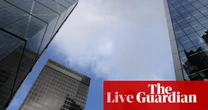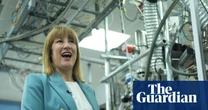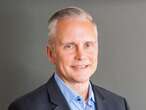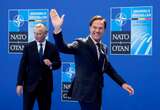This article is part of a series for National Disability Employment Month produced in collaboration with Making Space CEO and disability rights advocate Keely-Cat Wells. These pieces examine the barriers that disabled people face to participating fully and thriving in the workforce, as well as potential structural solutions. The illustrations for this series were created by Dana Chan, an artist discovered through the Making Space platform.
Unlike many teenagers, I knew exactly what I wanted to do for a career. I was fortunate as a child to have found a passion for performing, and by the age of 9, I was already making money doing what I loved. Determined to earn a spot at one of the most prestigious dance academies in London, I auditioned several years in a row until I finally earned my spot at age 17. But not too long into my education, I started feeling unwell, experiencing pain, sickness, and dizziness.
A doctor quickly dismissed my symptoms. Over the next few weeks, I got sicker. I lost a dramatic amount of weight and couldn’t eat. Despite visiting the ER regularly, doctors continued to dismiss me. It was only when my life was clearly at risk that the health system began taking me seriously. Years passed, with misdiagnoses, medical malpractice, and botched surgeries. Ultimately, my dream of attending college came to an end.
After undergoing major surgery, I knew my body, energy, and mobility would never be the same. Dance became a distant thought, and I grieved for my old body. But I was grateful to be alive. I wanted to return to the creative industries, so I started working at a talent agency. Navigating treatments and frequent hospital visits, I found it difficult to meet the requirement of working from the office. Eventually, I separated from the agency and began representing talent independently.
Seeking a fresh start, I took a trip to Los Angeles and fell in love with the city, the opportunities, and the prospects it offered. A new dream emerged. However, as I began searching for employment in America, I was immediately confronted with barriers. One of the most glaring issues I faced was attitudinal. I experienced disability discrimination that cost me a job, simply because a basic, no-cost adaptation was rejected, and I was deemed unsuitable. It became clear that barriers weren’t just physical.
When disabled people disclose, assumptions are made about what we can or cannot do. Continuing the job search, I noticed there was and still is a persistent prioritization of stamina over talent. Roles will require lifting a certain amount of weight or driving a car. Or the expectation to endure long hours will overshadow real skill.
It’s only in recent years, after a global pandemic forced nondisabled people to need remote work, that this accommodation became widely accepted. The deep-seated societal biases and discrimination at play, demonstrating that disabled people are still not considered in decision-making processes or when designing systems and policies.
It was only after this experience that I began identifying as disabled. Previously, I had labeled myself as chronically ill, avoiding the term disabled. “Coming out” as disabled allowed me to fully embrace this next chapter, better understand my rights, connect with the community and become a stronger advocate for myself.
After connecting with the vast disabled community in Hollywood, I started to realize that disability discrimination—not just within the entertainment industry, but more broadly—had been normalized. I also learned, much later than I should have, about the ADA and its protections. Frustrated by my struggles to find employment and the lack of disability representation in the creative industries, I started representing disabled talent, including actors, athletes, writers, and content creators.
Relatively quickly, we gained traction. We began pitching clients for roles that didn’t specify the character had to be disabled, advocating for access requirements, fair pay, and ensuring they were positioned as the talent they are. After working on some unforgettable projects and with talent who had been Academy Award- and Emmy-nominated, C Talent was acquired.
Following the acquisition, I started to build Making Space, with the mission of creating new and improved pathways to employment and career advancement for disabled people. A talent acquisition and learning platform for companies to train, access, and retain prequalified disabled talent.
I partnered with disability rights advocate, author, and TV host Sophie Morgan, and together we are dedicated to creating better outcomes for disabled talent globally and across all sectors. We also founded Making Space Media, a division of Making Space where we content that centers on the disabled voice and have secured a first-look deal with Reese Witherspoon’s Hello Sunshine. Earlier this year we released our first-documentary, Sophie Morgan’s Fight To Fly.
My story of struggling to find employment, navigating broken systems, and having to get creative to survive is not an isolated one. Many disabled people are forced to create their own opportunities as traditional employment presents countless barriers, whether it’s subminimum wage, asset limits, inaccessible transportation, minimal disabled leadership, or inaccessible work environments and education.
We are constantly left behind and erased. This is ironic, given that there is a labor shortage and a dire need for creative, adaptable, and innovative workers, qualities that disabled people naturally have, from living in a world not designed with us in mind. Despite this, disabled people are still twice as likely to be unemployed in the U.S. The unemployment rates are far, far worse for those with intersectional identities.
Disabled entrepreneurs are 400 times less likely to receive venture capital than nondisabled founders. We’re often forced to be entrepreneurs, and we’re good at it, yet the funding simply isn’t there. Disabled people deserve visibility, equitable access, career advancement, and leadership roles. We need equitable opportunities to break out of the silos we’re often boxed into.
In order to combat these narratives, I’m partnering with Fast Company to publish a series of essays throughout October, Disability Employment Awareness Month. Each week, disabled advocates, professionals, and writers will spotlight critical issues affecting disabled workers, such as subminimum wage, the challenge of designing equitable Employee Resource Groups, and how inaccessible air travel continues to hinder career opportunities for disabled professionals.
Disability does not discriminate. Anyone can become disabled at any time in their life. And if we are fortunate to live long enough, we will all experience disability in some form—whether permanently, situationally, or temporarily. When we normalize disabled people being experts in subjects beyond disability and design with disabled people in mind, the world becomes more accessible and equitable for everyone. Whatever your disability journey, I am excited to be on it with you.







No comments